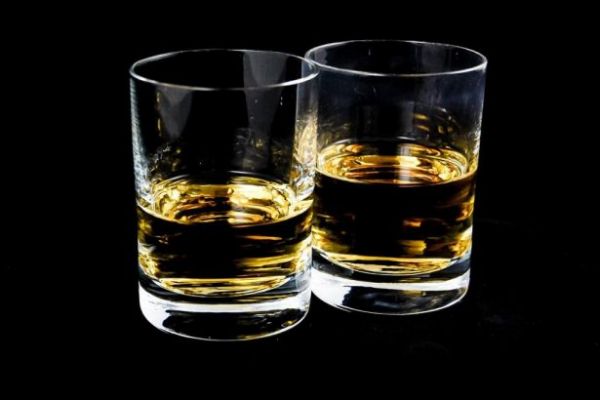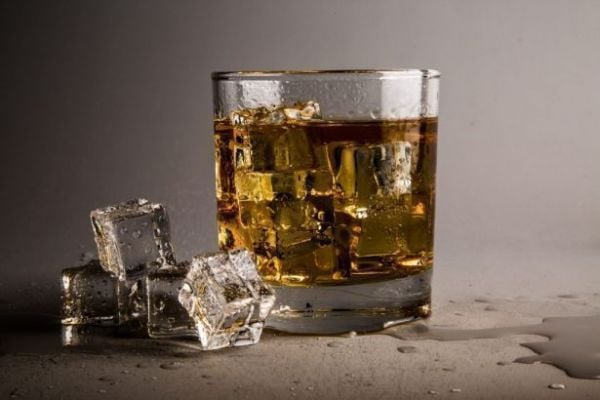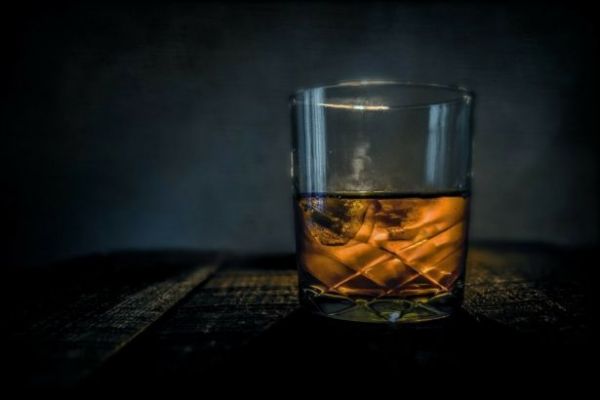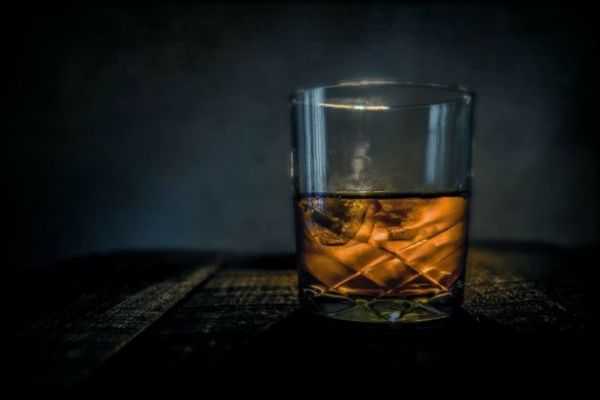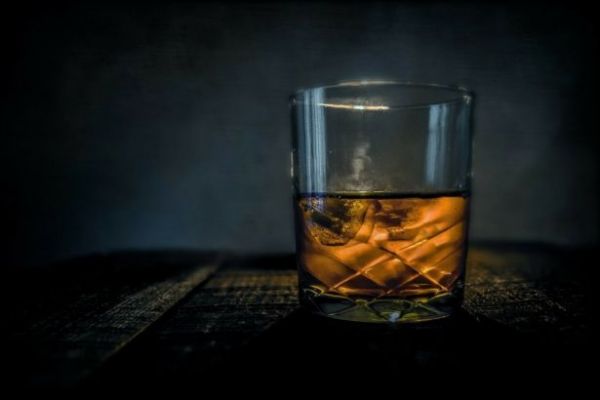Lewis, the largest of the Outer Hebrides islands clustered off Scotland’s west coast, is a wild, wind-whipped place. Surfers come for a string of golden sand beaches relentlessly battered by the Atlantic Ocean, none more spectacular than Uig (pronounced OO-ig). I came for the Scotch.
Perched in that idyllic location is an unexpected, rather ramshackle sight: a whisky distillery – the first licensed malt shop to operate since local mores shut down stills two centuries ago. Mark Tayburn, known as Marko, is the man behind the Abhainn Dearg (AV-un JUH-ruk) distillery. (The mouth-mangling names here are Scots Gaelic, the first language of more than half (PDF) the locals.) With close-cropped black hair and a playful mischievousness, dressed in cargo shorts and Crocs, he’s a Hebridean Mario Batali. His new namesake water of life is the final bottle needed in a comprehensive whisky collection, its unassuming cluster of huts the final stop on a tasting map tour. This is about as far afield as a besotted whisky aficionado could get. Farther west, there’s nothing but roiling sea and eventually, North America.
Setting Up Shop
"I started drinking whisky very young, when I was poaching," Tayburn recalls, standing on the distillery’s pebbly driveway. "It takes me back, chasing deer or salmon. What a rite of passage.”
Nearby, the waterway after which the distillery is named sloshes noisily, easily audible above the tinkly pop music piped into the work area. "It doesn’t pick up peat," he says of the fresh supply. "It’s very, very soft and always runs clean." (Abhainn Dearg is Gaelic for Red River, a throwback name referring to a brutal battle between locals and marauding Vikings.)
Inspired by this fresh source of water, the Hebrides-born former construction worker took over a onetime salmon hatchery here and turned it into a distillery, for which he was granted legal permits in late 2008. Three years later, his fledgling operation released its first batch in tiny quantities. The liquid itself is surprisingly light and sweet, less peaty and smoky than malts from Islay in the the Inner Hebrides, the region’s less windswept sister islands. The nine thriving distilleries there produce such renowned, peaty malts as Laphroaig, Ardbeg, and Lagavulin, which bodes well for the success of the Outer Hebrides.
For now, much of that early batch has been reserved for a 10-year single malt which will stay in barrel until 2018. Whisky completists should mark their calendars for that issue and ask Tayburn to notify them as soon as it’s available – this is a rare chance to pick up a distiller’s first-ever expression for just a few hundred dollars.
Field to Bottle
Meanwhile, Tayburn is workshopping his methods, developing what he calls "field to bottle" whisky, where every ingredient is grown locally. The barley struggles somewhat in the peaty soil blanketing the island, giving it its own terroir, of sorts; the malt is then kilned using the same burning peat. It, too, will eventually be released as a 10-year expression.
Tayburn limits production to just 10,000 or so litres each year, though his distillery has capacity for up to five times as much. "Life’s too short. I like to be home at night, playing with the wee one," he shrugs.
With a full-time staff of four, plus two part-timers, Marko is affably casual with anyone who stops by for a distillery tour. He sells his spirits online as well as in person; when a passerby stops in during our interview to pick up a bottle or two – the man explains he’s an expat Hebridean working as an oilman in Texas – Marko fumbles to find bottles ready to sell.
"That’ll be £56. I don’t have a card machine." He pauses, then says in his Scottish burr, "Och, give me £50, that’ll do."
The Wee Free
That thirsty expat likely picked up his taste for single malts stateside. The Outer Hebrides are an oddity in Scotland because the region hasn’t produced homegrown whisky for almost 200 years.
It was wealthy prohibitionist James Matheson who transformed the islands after becoming proprietor of Lewis in the 1840s. Though Matheson had made his fortune in the opium trade, he disdained alcohol; under his rule, the sole small whisky distiller in Stornoway was shuttered, and public life fell under the purview of an extreme sect of Calvinism that still holds sway today. Nicknamed the Wee Free, it’s more accurate to call them the Fun Police. Until recently, playgrounds were padlocked on the Sunday Sabbath to prevent children from frolicking when they should be at church; many of those now-unlocked playgrounds still boast Sabbath-boosting signs. They were also ferociously teetotal – indeed, the Scottish mother of lifelong alcohol-abstainer Donald Trump was born and brought up a just a short drive from Tayburn’s whisky-making shingle.
It wasn’t just such cultural conservatism that stymied whisky-making here, according to expert Dave Broom of Scotchwhisky.com; there were economic factors, too. Many of the regions that are now world-famous, such as Speyside, Broom notes, were well-serviced with transport links by train or boat even in early Victorian times. This enabled them to quickly and affordably export their products and import raw materials; the Outer Hebrides, separated from the mainland by a roiling sea known as the Minch, wasn’t so fortunate.
Single-Malt Ascendence
The emphasis on blended whiskies that continued until the 1990s was a factor, too. By Broom’s estimate, more than 90 per cent of production was intended for such mass market blends, favoring established mainland distilleries and making it even more unlikely that artisanal outfits such as Tayburn’s could earn a foothold. A similar set of circumstances stymied single grain whiskies as well.
The popular emergence of single-malt Scotch has made it easier for Abhainn Dearg and others. It’s vital for any completist to sample Tayburn’s whisky, Broom says via phone from his office in Brighton, England. "Like any distiller, it takes time to sort out its character and consistency, but if you have a taste for something like Talisker or maybe Kilchoman, sweet and well-balanced, then that would be the ballpark, once it has a few more years of maturity on it."
Then There Were Two
By then, though, Tayburn’s tipple won’t be alone. In Harris, the island to the south of Lewis, another new liquor firm has just opened. The Harris Distillery is housed inside the former police station in the small town of Tarbert and run by the charming Glenmorangie vet Simon Erlanger. His company’s commitment to the islands is emphatic.
"Turning a whisky business into a cash cow is a long, long-term business," Erlanger explains via Skype from the distillery’s HQ. He calls his startup a "social distillery" where everything possible, including bottling and maturation, is done on the island to help drive employment; indeed, in lieu of a single nose, there’s a 12-person nosing panel that includes local volunteers and select staffers who will judge the caliber of the aging spirit.
Erlanger is hopeful of bottling the house dram, known as Hearach (HUH-ruck) in about four years’ time; the first batch will consist of 1,916 bottles, one for every person living on Harris. (Hearach is the Gaelic word for an inhabitant of the island.) For £400 ($580), you can preorder a bottle of this pioneering whisky; charter buyers’ names will also be inscribed on a wooden stave in the warehouse, which will offer them free distillery tours for life. Expect whisky, Erlanger promises, "with character and complexity, not a meek mild Speyside, and we have very long fermentations," he adds, joking about the religious traditions nearby. "The Sabbath gives us extra days."
Abhainn Dearg and Harris Distillery see each other as allies rather than rivals in their nascent niche. "I would love to have more distilleries so the Outer Hebrides is recognized as a new whisky region," Erlanger says. Adds Tayburn: "Maybe we could set up a whisky trail through these islands." Just don’t mention it to the Wee Free.
News by Bloomberg, edited by Hospitality Ireland
